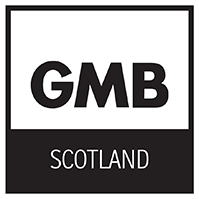Striking care workers rally as councils are warned not to scapegoat women
Councils must not scapegoat women workers for multi-million pound equal pay claims threatening to bankrupt them, according to GMB Scotland secretary Louise Gilmour.
She warned women fighting for fair pay must not be blamed for the financial calamity threatening to engulf some local authorities.
Gilmour spoke out as home care workers striking across three council areas, Falkirk, West Dunbartonshire, and Renfrewshire, gathered in Glasgow to call for pay that reflects their roles and responsibilities.
The union warns most councils are still failing to engage with the claims for equal pay while unfairly suggesting the money should be spent on threatened services.
Gilmour said: “We know local authorities are struggling to make ends meet and we know why.
“But to suggest women workers are somehow making things worse by asking for money they are owed and, in many cases, have been owed for years is as dishonest as it is disgraceful.
“To blame equal pay claims instead of the systemic pay discrimination that has prevailed in our councils is scapegoating workers only asking for what they are owed.
“It is an attempt to guilt women into believing they are being greedy and risking men’s jobs by simply asking for what they are due and have been due for years and years.
“The cost of settling equal pay issues is looming over Scotland’s local councils but is not about women, it is about fairness and has been too long coming.”
Strikes involving the union’s members working in home care in the three councils started on Friday and are continuing this week.
GMB Scotland, representing relatively low-paid women across the public sector, has warned claims totalling tens of millions of pounds will risk sinking local authorities without government intervention.
Gilmour has written to first minister Humza Yousaf urging him to support the creation of a new specialist body to decide on pay discrimination claims across the country and enforce awards because local authorities are refusing to face reality.
Gilmour said: “Scotland’s councils are approaching equal pay claims like the Titanic approaching the iceberg.
“Councillors have their heads in the sand and executives have their fingers in their ears but these equal pay claims will come, will be won and will need to be settled.
“It is understandable that our councils are refusing to acknowledge the reality because the reality is unthinkable and the scale of these claims unimaginable for local authorities already being forced to cut services.
“Women who have been underpaid for far too long will still win these claims, however, and, unless that process is properly managed now, the impact on our councils and the communities they serve could be disastrous.”
Care workers, mostly relatively low paid women, are striking in Falkirk, West Dunbartonshire and Renfrewshire council areas after rejecting internal reviews of their pay grade, saying their role and responsibilities have increased dramatically since their jobs were last assessed.
Gathering for a joint rally and demonstration in George Square, Glasgow, today, they are among the women working across the public sector, who believe their role and responsibilities has been undervalued for decades compared to the work done by male colleagues.
A higher pay grade could be applied retrospectively meaning the workers claiming up to five years’ back pay with unions estimating the eventual cost, if replicated across other departments and other councils, running into tens of millions of pounds.
In addition to the three councils where industrial action is already underway, GMB Scotland has ongoing equal pay campaigns in Dundee, Perth & Kinross, Angus, Fife and Moray with a process expected to lead to pay reviews in more than a dozen more.
Glasgow City Council is in an ongoing process of settling equal pay claims and has already sold council-owned buildings – including Glasgow City Chambers and Kelvingrove Art Gallery – to an arm’s length company to settle an initial £770 million bill.


